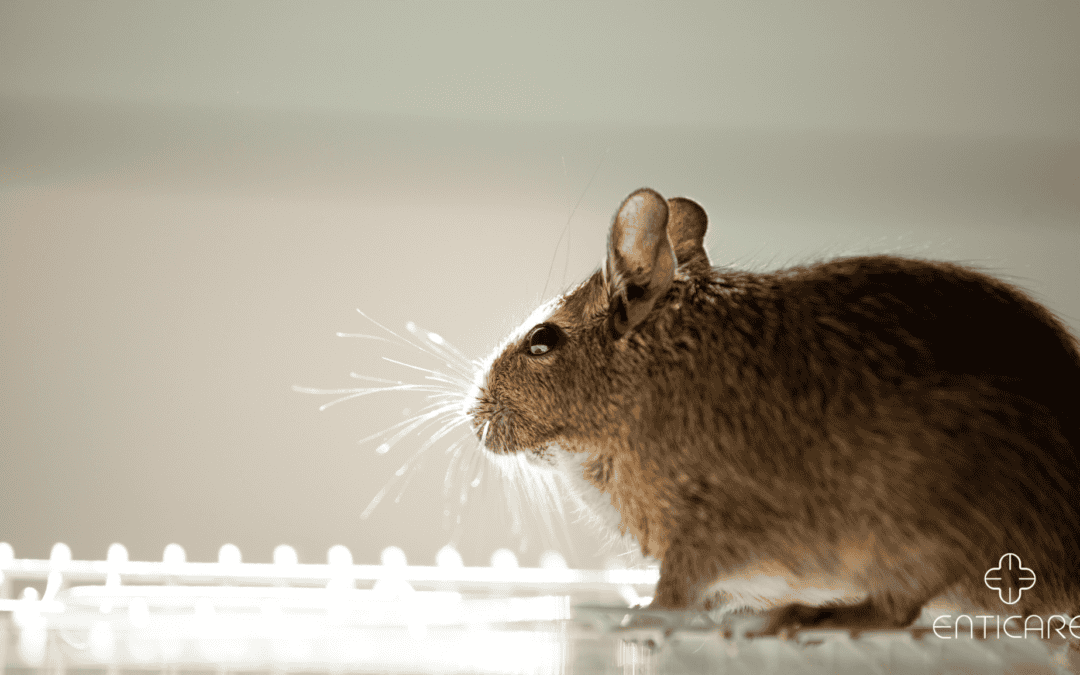Rodent allergies can significantly impact your quality of life. Symptoms like sneezing, itching, and respiratory issues make daily activities challenging. This guide will help you understand rodent allergies, their symptoms, and how to manage them effectively. Let’s explore how you can fight back against rodent allergies and find relief.

Understanding Rodent Allergies
What Causes Rodent Allergies?
Rodent allergies stem from proteins found in the urine, saliva, and dander of rodents such as mice, rats, and guinea pigs. When these allergens become airborne, they can trigger allergic reactions. These proteins can stick to surfaces, including furniture, carpets, and bedding, making it difficult to avoid exposure even if you don’t see the rodents themselves. Risk factors for developing rodent allergies include genetic predisposition and occupational exposure to these allergens.
Common Rodent Allergens
The most common rodent allergens include proteins from mouse urine and saliva. Mouse urine contains a protein called Mus m 1, which is a potent allergen. Rat allergens, similar to those from mice, can also cause significant allergic reactions. These allergens can travel through the air and settle on various surfaces, increasing the risk of exposure.
Who is at Risk?
Anyone can develop a rodent allergy, but some individuals are at higher risk. People with a history of allergies or asthma may be more susceptible to developing rodent allergies. Laboratory workers who handle rodents are at a higher risk of developing rodent allergies. Those who work in environments where rodents are present, such as laboratories, pet stores, or farms, face a higher risk. Additionally, living in areas with high rodent populations increases the likelihood of exposure to these allergens.

Identifying Rodent Allergy Symptoms
Respiratory Symptoms
Rodent allergies often manifest as respiratory symptoms. These include sneezing, runny or stuffy nose, and itchy, watery eyes. Rodent allergies can cause allergic rhinitis, leading to symptoms similar to hay fever, such as sneezing and nasal congestion. Some individuals may experience coughing, wheezing, or shortness of breath. These symptoms can resemble those of other respiratory conditions, making it essential to consider rodent allergies as a potential cause.
Skin Reactions
Skin reactions are another common symptom of rodent allergies. You might notice red, itchy skin or hives after coming into contact with surfaces contaminated with rodent allergens. These reactions can occur quickly after exposure or develop over time with repeated contact.
Severe Reactions
In some cases, rodent allergies can lead to severe symptoms, including asthma attacks or anaphylaxis. Severe symptoms such as asthma attacks can include difficulty breathing, chest tightness, and a significant increase in wheezing. Anaphylaxis, a rare but life-threatening allergic reaction, requires immediate medical attention.
Diagnosing Rodent Allergies
Medical History and Physical Exam
To diagnose rodent allergies, a doctor will first review your medical history and conduct a physical exam. They will ask about your symptoms, their duration, and any known exposure to rodents. This information helps the doctor determine if rodent allergies might be the cause of your symptoms.
Allergy Testing
Allergy testing can confirm a diagnosis of rodent allergies. Skin prick tests involve placing small amounts of rodent allergen extracts on your skin and observing for a reaction. Blood tests, such as specific IgE tests, measure the presence of antibodies to rodent allergens in your blood. Both tests can help identify if you have a sensitivity to rodent allergens. A pulmonary function test may also be used to diagnose asthma related to rodent allergies.
Environmental Assessment
An environmental assessment can also aid in diagnosing rodent allergies. Inspect your home or workplace for signs of rodent infestation, such as droppings, nesting materials, or sightings of rodents. Identifying and addressing the source of rodent allergens is crucial for managing symptoms effectively.

Managing and Treating Rodent Allergies
Avoiding Exposure
The best way to manage rodent allergies is to avoid exposure to rodent allergens. Take steps to eliminate rodents from your environment by sealing entry points, setting traps, and keeping food in sealed containers. Regularly clean areas where rodents may have been present, using a HEPA filter vacuum to reduce airborne allergens.
Medications
Several medications can help manage allergic symptoms of rodent allergies, such as sneezing, itching, and nasal congestion. Antihistamines reduce sneezing, itching, and runny nose. Nasal corticosteroids decrease inflammation in the nasal passages, alleviating congestion and discomfort. For asthma symptoms triggered by rodent allergens, inhaled corticosteroids and bronchodilators can provide relief.
Immunotherapy
Immunotherapy, or allergy shots, is another treatment option for rodent allergies. This involves receiving regular injections of rodent allergens in gradually increasing doses. Over time, your immune system becomes less sensitive to the allergens, reducing the severity of your symptoms. Immunotherapy can be especially beneficial for individuals with severe or persistent rodent allergies. It can also be particularly advantageous for individuals with laboratory animal allergy, helping those who work closely with rodents like mice and rats manage their symptoms effectively.
Creating a Rodent-Free Environment
Home Maintenance
Maintaining a rodent-free environment is crucial for managing rodent allergies. Regularly inspect and seal any gaps or cracks in your home’s foundation, walls, and windows. Keep your home clean and free of food debris, which can attract rodents. Store food in airtight containers and dispose of garbage regularly.
Professional Pest Control
Consider hiring professional pest control services to address rodent infestations. Pest control professionals can identify and eliminate rodent entry points, set traps, and provide ongoing monitoring to prevent future infestations. Professional services can be more effective than DIY methods, ensuring a rodent-free environment.
Air Quality Improvement
Improving indoor air quality can also help manage rodent allergies. Use air purifiers with HEPA filters to reduce airborne allergens. Regularly clean and dust your home, paying special attention to areas where rodent allergens may accumulate. Ensure proper ventilation to keep indoor air fresh and reduce allergen buildup.
Conclusion
Rodent allergies can be challenging, but understanding their causes, symptoms, and treatment options can help you find relief. By identifying and avoiding rodent allergens, seeking appropriate medical care, and maintaining a rodent-free environment, you can significantly reduce your symptoms and improve your quality of life.
Take control of your rodent allergies today. Schedule an appointment with our experts at Enticare to discuss your symptoms and develop a personalized treatment plan. Dial 480-214-9000 and take the first step toward wellness.

